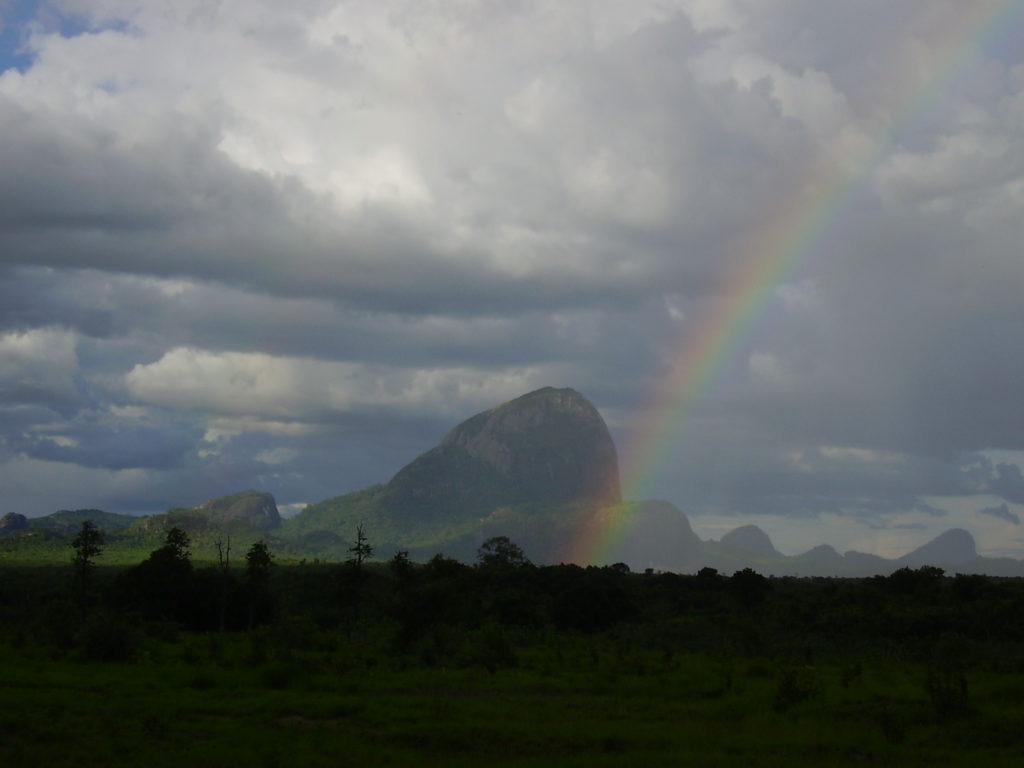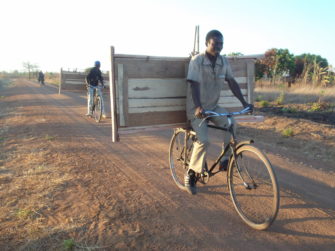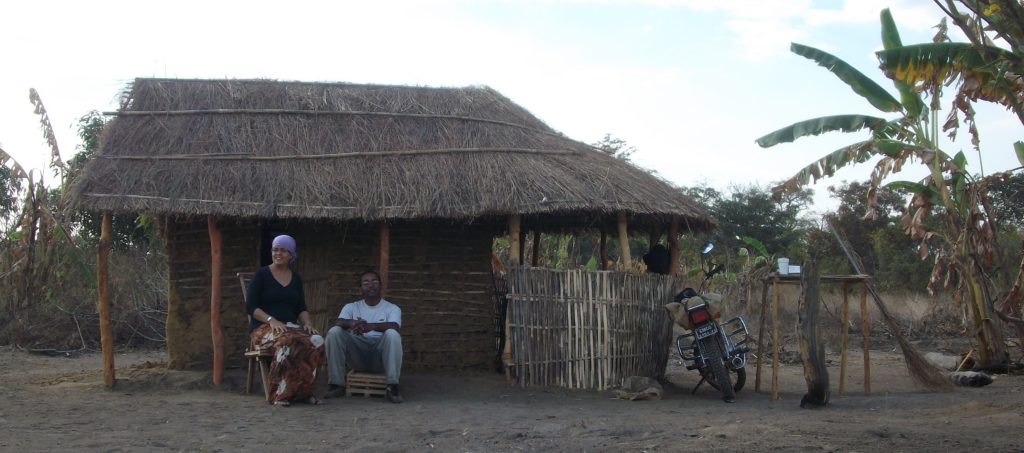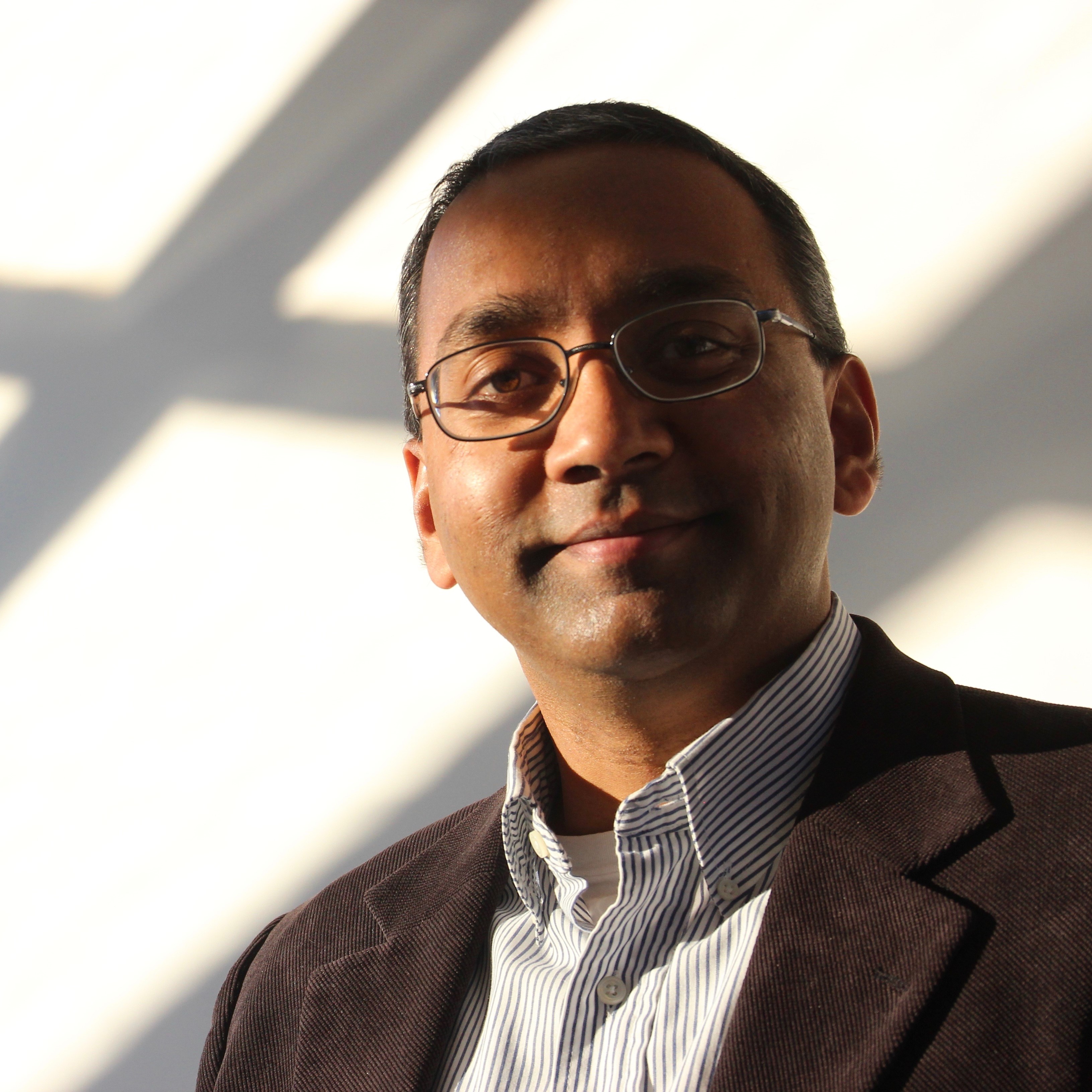
It is an author’s dream-come-true to have their work carefully read and thoughtfully evaluated. Even more so in this case, where the interlocutors with my book are among its most important influences. I sincerely thank Robert Baum, Harri Englund, Laura Grillo, and Ebenezer Obadare for their collegial and considerable engagements with Faith in Flux, for capturing as well as they have what I hoped would read as the book’s main interventions, and for continuing the conversation with incisive questions and critiques. Thanks also to Joshua Lupo and the entire editorial team of Contending Modernities for hosting this symposium.
It is significant that each of the interlocutors is an Africanist, a specialist in the continent long considered to be little more than a supplier of data for western knowledge production. Yet each of them has advanced in their own way a necessary corrective: that Africa provides not just raw materials but the very frameworks and paradigms that themselves can illuminate social and historical processes on the continent, but also in different parts of the world and, indeed, with respect to global modernity itself.
Regrettably, the popular and, in even some academic quarters, prevailing view is of Africa as a place of negation. Germane to the argument of Faith in Flux is the Hegelian depiction of Africa having “no movement or development to exhibit.” This trope of stasis finds expression in the unguardedly racist remarks of former French President Nicolas Sarkozy when he says, “The tragedy of Africa is that the African has not fully entered into history.” Yet it is there even in benign pronouncements from Time magazine and the Economist magazine about “Africa rising,” or in US President Barack Obama’s declaration that Africa is “on the move.” These latter comments refer to Africa’s recent economic gains, health advances, and inroads against corruption. All of these are worth celebrating, of course, but when is it that Africa was not rising, not on the move?
I am grateful to the interlocutors with Faith in Flux for noting as its central argument that the image of “traditional” Africa as timeless and immobile is not just wrong. It runs diametrically counter to much empirical evidence. Mobility as associated with transnationalism, diaspora, and long-distance migration has become a buzzword in the study of modernity. But modernity, it must not be forgotten, has also introduced border regimes and border thinking, promoted settlement and sedentariness, and privileged bounded identities and permanent residents. By looking at mobility beyond Eurocentric accounts of modernity, Faith in Flux aims to disrupt the top-down projects of self-conscious modernizers—whether agents of the state, of Pentecostalism, or of reductive social science—who favor the singular and stable over the multiple and mobile.
For the Makhuwa-speaking people among whom I worked, stasis is tantamount to death. To live is to move, to be is to become, and to endure is to embrace the potentialities—and vulnerabilities—of continuous change. The Makhuwa privilege fluidity and flexibility. Thus, what I document about their ambivalent reception of Pentecostalism should not suggest an incapacity of any sort. The title of my book, Faith in Flux, is not meant to indict the Makhuwa for having a faith that is in flux, but to highlight their capacity for putting their faith in flux—in the virtue or the value of adaptability, elasticity, and change.

The concern has been raised—not by the interlocutors here—that my book’s focus is too narrow to be of relevance beyond the very small number of researchers who also care about rural Mozambique. Here again is the tendency to find mobility interesting only if it applies transnationally or to consider Pentecostalism significant only with respect to its global reach. But the hope of Faith in Flux is (to invoke the anthropological dictum) to explore large issues from small places. It is also to show that if prominent themes in contemporary theory—hybridity, heterogeneity, mobility, diaspora—are truly relevant, their relevance must hold not only in obviously cosmopolitan sites (urban centers, transnational networks, the World Wide Web), but even in such “out-of-the-way” spaces as rural Africa.
Yet it is concerning that both African studies and anthropology have come of late to spurn the rural in favor of the urban and cosmopolitan. There are highly generative ways of studying African Pentecostalism in relation to state power, civil society, and other macro-scale phenomena. Obadare’s groundbreaking scholarship out of Nigeria demonstrates this well. But, in general, as Englund has suggested, the study of Pentecostalism in Africa has focused so much on urban and middle-class populations that much has been missed—for example, “the intricate webs of relationships within which the majority of African Pentecostals live their lives, never quite able, or even willing, to confine their social and spiritual existence to the church.” Baum and Grillo, in their respective long-term projects, exemplify well the value of contextualized research sensitive to cultural complexities even in seemingly remote settings. Against trends within religious studies that see Islam and Christianity displacing what came before, both argue for the resilience of the indigenous in the contemporary world. Evident in the work of all four interlocutors is that to spend time conducting long-term and localized fieldwork is not to dwell on so many irrelevancies, but to take the measure of modernity—or modernities—itself.
I turn now from common ground to questions, critiques, and challenges. For these I also am grateful, not just because they provide an opportunity to clarify key parts of my project, but also because they demonstrate about scholarship what the Makhuwa illustrate about life: it, too, is never static or complete, but rather ever-unfolding with each new encounter.
The first of Obadare’s provocations regards what I describe as the banality of conversion—its regularity and reversibility in the Makhuwa context. He notes from his own work on Nigerian Pentecostals the premium placed on being “born again,” on breaking with one’s former self. I would not deny that a similar understanding operates among the Makhuwa. I only question whether breaking with the past precludes breaking back to it, particularly when that “past” is already marked by an openness to change. There is indeed something powerful about “born again” experiences, but it may be presumptuous to associate them only with born-again Christians, or to assume that being born again cannot be followed by being born again again. Obadare also asks whether Pentecostalism’s presence in the farthest reaches of Mozambique in fact confirms claims of Pentecostal explosion that I call into question. Even if Pentecostalism has failed to take root there, it is there, and that may be the point. This entirely legitimate interpretation allows me to clarify that my critique of the “Pentecostal explosion” narrative does not mean to question the empirical fact of Pentecostal expansion (even “to the ends of the Earth”) but rather the demographic claim that wherever Pentecostalism goes it grows. It is also to question the assumption that wherever Pentecostalism goes it displaces what stands in its way. This notion of rupture does not apply in the case I observed because indigenous traditions persist even in and through the lives of Pentecostal converts—and this is because Makhuwa “tradition” is itself elastic enough to encompass the kinds of radical change demanded by Pentecostal conversion. Finally, Obadare questions my questioning of the bourgeois tendency to locate well-being in secure and stable identities. My worry is the ease with which those who live by this tendency naturalize it, viewing not just themselves but everyone else through what anthropologist Liisa Malkki calls a “sedentarist bias.” This bias makes structurally invisible such liminal figures as refugees (the focus of her research) and converts (the focus of mine) and blinds us to how such people manage to make meaningful lives not despite, but by, living on the edge.

In his response, Englund raises fair critiques of the existential-phenomenological approach for which I advocate insofar as it carries with it the potential to shortchange such issues as hierarchy, inequality, and structure. Englund pushes me to practice what I (or the Makhuwa) preach: to be less fixed on agency and improvisation and, instead, to oscillate between a privileging of individual subjectivity and a reckoning with conditions and constraints. I appreciate that Englund notes where I do acknowledge the heavy-handed border policing of state actors, development workers, and Pentecostal evangelists. I also appreciate Englund’s own language of human interactions being “structured and yet not determined.” Precisely this is the dialectic I try to uphold with my theorizing of existential mobility (16-21). My argument there is that some people may be prone to move, and prone to convert, not in spite of cultural conditions and structural constraints, but (at least partially) because of them. Both Makhuwa and Pentecostal frameworks promote mobility from within. The more grounded one is in either, the more conditioned one is to make moves—sometimes within, sometimes beyond. This attempt at reconciling existential and structural approaches may not convince, but if I err I am not ashamed to err on the side of agency and improvisation, on Englund’s “and yet not determined.” Social scientific analyses too often omit living and breathing human beings—individuals in all their indeterminacy and irreducibility. If it is an over-correction to privilege what historian Michel de Certeau terms “the practice of everyday life” or anthropologist Bronislaw Malinowski “the imponderabilia of actual life,” it is one that is badly needed, one incidentally that ethnographers are particularly well equipped to make.
Turning to Grillo, I am afraid she misreads me when she writes of my “reach[ing] for an overarching vision” having to do with maternity and matricentric. I did not set out to study gender among the Makhuwa. I wrote as much as I did on the topic only because it presented itself to me in the field. My book does not aim or claim to exhaust the topic, and could not have anyway because my positionality as a male researcher made female perspectives largely inaccessible to me. Grillo faults me for basing my analysis of gender on a male, but not a female, initiation rite. In my defense, I could only go where I was allowed. Perhaps, then, I should have remained silent on gender, but that would have courted a different and well-deserved critique. It also would have caused me to miss extraordinary insights into what was, indeed, the “overarching vision” to which I was reaching: an appreciative understanding of the circularity of religious conversion. With regard to that theme, Grillo rightly raises the issue of maternal return in Makhuwa male initiation. Anthropologists have typically cast male initiation as a unilinear transition—from sexually amorphous childhood to strictly male adulthood—but the prominence of the maternal in Makhuwa male initiation suggests more a “rite of return” than a “rite of passage.” This, I argue, helps us understand why conversion, analogous in many ways to initiation, is frequently also circular, also reversible. Respecting my discussion of the masculinization of social life via modernization, and the ability of Makhuwa women to still retain a degree of autonomy, Grillo is clearly unconvinced. But she oddly dwells more on my argument’s style than on its substance. Her one example of “hard facts” countermanding my “seductive” and “clever” analysis is on a different issue, and here again she misreads me. My assessment of corporeal continuity between Pentecostalism and indigenous traditions does not deny that Pentecostal pastors enact a bodily rigidity at odds with Makhuwa mobility. It does, however, refuse to make pastors the only, or even the best, representatives of Pentecostalism. The “bottom up” approach by which Grillo describes my work entails attending at least as much to the movements of ordinary women and men—movements that cross, and cut across, traditions—as to the efforts of elites to arrest such movements.
The amplification of marginal perspectives is a defining virtue of Baum’s scholarship. It is tremendously gratifying, therefore, to read his generous response to Faith in Flux. Baum has consistently argued for the persistence of the indigenous not despite, but often in and through, processes of modernization, Christianization, and Islamization. He is right to have critiqued Robin Horton’s influential theory of conversion in his 1990 article, and he is kind to say that my approach adds a layer of nuance to his critique. What Baum’s own reading of my work through his earlier reading of Horton calls to mind is a problem with yet another of Horton’s influential discussions—on rationality—in which he bifurcates “closed” traditional cultures and “open” scientific ones. This is precisely the kind of dualism—between tradition and modernity, continuity and change, Africa and the West—against which my book strenuously argues. If anything, it may ironically be African tradition, despite what “tradition” connotes, that does more to promote openness and engagement. It draws not on western metaphysics with its mania for separation, differentiation, and closure, but on African metaphysics, which, as critical theorist Achille Mbembe argues, allows us to think of identity in movement. Thus, what Baum calls “reconversion” may owe not only to the failure of Christianity to respond to “local experience,” but to the ways “local experience” promotes endogenously the kinds of mobility and creativity often associated with the West and denied to Africa.
Let me close by again expressing deep gratitude to Baum, Englund, Grillo, and Obadare for attending so carefully to the arguments of Faith in Flux. What revisiting my book through their eyes, and for this forum, has helped clarify is not just the nature of mobility beyond modernity, but also the many forms mobility may take: local and global, religious and ritual, constrained and gendered, spatial and existential. We have learned to speak of multiple modernities. Going forward, we might now speak of multiple mobilities.

